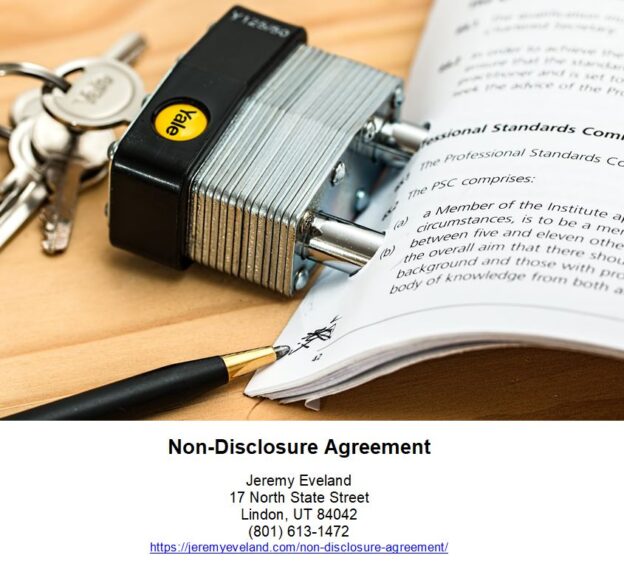Have you ever wondered about the intricacies of business contracts? In this article, we will explore the importance of business contracts and how they can protect your interests. Whether you are starting a new business or entering into a partnership, having a solid legal agreement in place is crucial. We will address common legal concerns, provide reassurance, and offer guidance on navigating the world of business contracts. So, let’s dive in and gain a better understanding of this essential aspect of the business world.
What are Business Contracts?
Business contracts are legally binding agreements between two or more parties that outline the terms and conditions of a business relationship. These contracts serve as a foundation for ensuring that all parties involved understand their rights, responsibilities, and obligations. When entering into a business contract, it is essential to consider the specific needs and goals of your business to ensure a fair and mutually beneficial agreement.
1.1 Definition
A business contract is a legally enforceable agreement that outlines the rights and obligations of the parties involved. It sets forth the terms of the agreement, such as the scope of work, payment terms, and duration of the contract. This written document provides clarity and protection for all parties, ensuring that everyone is on the same page and understands their responsibilities.
1.2 Importance
Business contracts play a crucial role in establishing trust and protecting the interests of all parties involved. By clearly defining the rights and obligations of each party, contracts minimize the risk of miscommunication, misunderstandings, and potential disputes. They provide a legal framework for resolving conflicts and ensuring that everyone’s interests are protected. Moreover, business contracts help businesses operate efficiently by establishing expectations and boundaries that enable smooth collaboration and business growth.
Types of Business Contracts
There are various types of business contracts, each designed to serve a specific purpose and address various aspects of a business relationship. Understanding the different types of contracts can help you determine which one is appropriate for your specific needs.
2.1 Sales Contracts
Sales contracts are agreements used when selling products or services. These contracts specify the terms of the sale, including the price, quantity, and delivery details. They also outline any warranties or guarantees provided by the seller and establish the rights and responsibilities of both the buyer and the seller.
2.2 Employment Contracts
Employment contracts are agreements between an employer and an employee that outline the terms of the employment relationship. These contracts typically include information about job duties, compensation, benefits, working hours, termination clauses, and any non-compete or confidentiality agreements.
2.3 Partnership Agreements
Partnership agreements are contracts entered into by two or more individuals or entities who agree to conduct business together. These agreements outline the roles, responsibilities, and financial obligations of each partner, as well as the distribution of profits and decision-making processes within the partnership.
2.4 Service Contracts
Service contracts are agreements between a service provider and a client that outline the terms of a service being provided. These contracts specify the scope of work, payment terms, duration of the service, and any other relevant terms and conditions.
2.5 Lease Agreements
Lease agreements are contracts between a landlord and a tenant, outlining the terms of a property rental. These contracts specify the rent amount, lease duration, maintenance responsibilities, and any other conditions related to the use of the rented property.
2.6 Non-disclosure Agreements
Non-disclosure agreements (NDAs) are contracts used to protect sensitive information and trade secrets. These agreements establish a confidential relationship between the parties involved and prevent the disclosure of confidential information to third parties.
2.7 Licensing Agreements
Licensing agreements are contracts that grant one party the right to use another party’s intellectual property, such as trademarks, patents, or copyrights. These contracts outline the specific terms and conditions of the licensing arrangement, including any royalties or fees that need to be paid.
2.8 Franchise Agreements
Franchise agreements are contracts between a franchisor and a franchisee, establishing the terms and conditions under which the franchisee can operate a business using the franchisor’s brand, trademarks, and business model. These agreements cover aspects such as territorial rights, fees, training, and ongoing support.
2.9 Purchase Agreements
Purchase agreements are contracts used when buying or selling goods or assets. These agreements specify the terms of the purchase, including the price, payment terms, transfer of ownership, delivery details, and any warranties or representations.
2.10 Joint Venture Agreements
Joint venture agreements are contracts between two or more parties who agree to combine their resources and expertise to pursue a specific business opportunity. These agreements outline the rights, responsibilities, and profit-sharing arrangements between the parties involved.

Key Elements of a Business Contract
When drafting or reviewing a business contract, it is crucial to understand the key elements that should be included to ensure a comprehensive and enforceable agreement. These elements lay the foundation for a strong contract that protects the rights and interests of all parties involved.
3.1 Offer and Acceptance
A business contract begins with an offer made by one party to another. The offer should clearly state the terms and conditions under which the offeror is willing to enter into a contract. Once the offeree accepts the offer, a valid contract is formed. It is important to ensure that both the offer and acceptance are clear, unambiguous, and communicated effectively.
3.2 Consideration
Consideration refers to something of value that each party gives or promises to give in exchange for the other party’s performance under the contract. It is the essence of a bargain and is necessary for a contract to be legally enforceable. Consideration can be in the form of money, goods, services, or promises to do or not do something.
3.3 Legal Capacity
For a contract to be valid, all parties involved must have the legal capacity to enter into agreements. This means that they must be of legal age, mentally competent, and not under the influence of any illegal substances that impair their judgment. It is important to ensure that all parties have the legal capacity to enter into the contract to avoid any future disputes.
3.4 Mutual Assent
Mutual assent, also known as the meeting of minds, is essential for a contract to be valid. It means that all parties involved in the contract must agree on the terms and conditions without any coercion, fraud, or misrepresentation. Clear and effective communication is crucial to ensure mutual assent and avoid any misunderstandings.
3.5 Performance Terms
A well-drafted business contract should outline the performance terms and expectations of each party. This includes details such as the scope of work, delivery deadlines, quality standards, and any specific requirements or milestones. Clear performance terms prevent misunderstandings and provide a basis for evaluating whether the contract has been fulfilled.
3.6 Termination and Breach
Every business contract should include provisions that address the termination of the contract and the consequences of a breach. These provisions outline the circumstances under which the contract can be terminated and specify the remedies available to the non-breaching party if a breach occurs. Clear termination and breach clauses protect the parties’ rights and ensure legal recourse in case of non-compliance.
3.7 Dispute Resolution
Including provisions for dispute resolution in a business contract is vital for avoiding expensive and time-consuming litigation. These provisions can include methods such as mediation or arbitration, which provide alternative means to resolve conflicts without going to court. Clearly defined dispute resolution procedures help protect the parties’ interests and ensure a smoother resolution process.
3.8 Governing Law
Determining the governing law in a business contract is essential for determining which laws and jurisdiction will apply to the contract. It is important to clearly specify the jurisdiction and laws that will govern the contract to ensure both parties are aware of their legal rights and responsibilities.
3.9 Confidentiality
Confidentiality clauses are crucial in contracts that involve the exchange of sensitive information or trade secrets. These clauses prevent the disclosure of confidential information to third parties and outline the consequences of any breaches. Including confidentiality provisions helps protect proprietary information and maintain the parties’ trust.
3.10 Indemnification
Indemnification clauses address the responsibility of each party for any damages, losses, or liabilities that may arise during the course of the contract. These clauses stipulate which party will bear the cost of any legal claims or actions and provide protection and peace of mind for all parties involved.
Drafting a Business Contract
When drafting a business contract, careful consideration must be given to ensure that all relevant details are included and that the contract accurately reflects the intentions and expectations of the parties involved. Following a systematic approach can help ensure a well-drafted contract that protects the interests of all parties.
4.1 Understand the Purpose
Before drafting a business contract, it is crucial to clearly understand the purpose of the contract and what the parties aim to achieve. This involves identifying the specific needs, goals, and expectations of all parties to ensure that the contract effectively addresses their requirements.
4.2 Identify the Parties
Clearly identifying the parties involved in the contract is essential to ensure that the agreement is enforceable. Include the full legal names, addresses, and contact information of all parties to avoid any confusion or ambiguity.
4.3 Define the Terms and Conditions
Carefully define the terms and conditions of the contract to ensure that they are clear, concise, and unambiguous. This includes outlining the scope of work, payment terms, delivery details, deadlines, performance expectations, and any other relevant provisions.
4.4 Include Specifics
Including specific details in the contract is important to avoid any misunderstandings or disputes in the future. Specify quantities, measurements, quality standards, and any other specific requirements that are essential for the performance of the contract.
4.5 Address Remedies and Consequences
Clearly address the remedies and consequences of non-compliance or breach of the contract. Include provisions that outline the rights and remedies available to each party, such as termination, damages, or specific performance.
4.6 Seek Legal Assistance
Seeking legal assistance when drafting or reviewing a business contract is highly recommended to ensure that the contract is legally enforceable and protects the interests of all parties. An experienced attorney can provide guidance, review the contract for any legal pitfalls, and help ensure compliance with relevant laws and regulations.
Key Considerations for Business Contracts
When entering into a business contract, there are several key considerations that should be taken into account to ensure a strong and enforceable agreement. These considerations help protect the interests of all parties involved and minimize the risk of potential disputes.
5.1 Clear and Concise Language
Using clear and concise language in a business contract is crucial to avoid any confusion or misinterpretation. Avoid complex legal jargon and strive for simplicity and clarity, ensuring that all parties can fully understand the terms and conditions without ambiguity.
5.2 Specificity and Precision
Being specific and precise when drafting a business contract helps avoid any misunderstandings or gaps in the agreement. Clearly define all key terms, obligations, rights, and responsibilities to leave no room for interpretation.
5.3 Complete and Comprehensive
Ensure that the contract covers all essential aspects of the business relationship. A comprehensive contract leaves no important details out and helps prevent potential disputes or gaps in the agreement.
5.4 Review and Revision
Reviewing and revising the contract before signing is crucial to ensure that all parties are in agreement and that their interests are protected. Take the time to carefully read and understand the terms and conditions, and do not hesitate to seek legal advice if needed.
5.5 Consideration of Legal Requirements
Consider any legal requirements or regulations that may apply to your specific industry or jurisdiction. Incorporate these requirements into the contract to ensure compliance and avoid any legal issues in the future.
5.6 Fair and Equitable
Strive for fairness and equity when drafting a business contract. Ensure that the rights and obligations of all parties are balanced and reasonable, promoting a healthy and mutually beneficial business relationship.
Common Mistakes in Business Contracts
When drafting or reviewing a business contract, it is important to be aware of common mistakes that can undermine the effectiveness and enforceability of the agreement. By being vigilant and avoiding these mistakes, you can help protect your interests and minimize the risk of future disputes.
6.1 Unclear or Ambiguous Terms
Unclear or ambiguous terms in a business contract can lead to misunderstandings and potential conflicts. It is important to use clear and concise language and clearly define all key terms and obligations to avoid any confusion.
6.2 Incomplete or Missing Clauses
Leaving out crucial clauses or failing to address important aspects of the business relationship can create gaps in the contract and lead to potential disputes. Ensure that all relevant clauses are included and that no important details are overlooked.
6.3 Lack of Consideration
For a contract to be legally valid, consideration must be present. Failing to include consideration or not clearly defining what is being exchanged can render the contract unenforceable. Ensure that consideration is clearly stated and understood by all parties.
6.4 Ignoring Dispute Resolution
Failing to include dispute resolution provisions in a business contract can make it difficult to resolve conflicts in a timely and cost-effective manner. Including clear dispute resolution procedures promotes smoother conflict resolution and helps protect the interests of all parties involved.
6.5 Failure to Review and Update
Contracts should be regularly reviewed and updated to ensure that they reflect the current needs and circumstances of the parties involved. Failing to review and update contracts can lead to outdated and ineffective agreements that may no longer accurately represent the business relationship.

Enforcing a Business Contract
Enforcing a business contract is crucial when one party fails to fulfill its obligations or breaches the terms of the agreement. It is important to be aware of the options available for resolving conflicts and seeking legal remedies to protect your rights.
7.1 Breach of Contract
When one party fails to fulfill its obligations under the contract, it is considered a breach of contract. This can range from non-payment to failure to deliver goods or services as specified in the agreement. Identifying and documenting the breach is the first step towards enforcing the contract.
7.2 Legal Remedies
Legal remedies for a breach of contract can include monetary damages, specific performance, or injunctions. The specific remedy will depend on the nature of the breach and the goals of the non-breaching party. Seeking legal advice is crucial to determine the appropriate legal remedies available in your specific situation.
7.3 Alternative Dispute Resolution
Alternative dispute resolution methods, such as mediation or arbitration, can be a faster and more cost-effective way to resolve contract disputes compared to going to court. These methods involve a neutral third party facilitating negotiations or making a binding decision. Including provisions for alternative dispute resolution in the contract can help promote a smoother resolution process.
7.4 Court Proceedings
If all other attempts to resolve the dispute have been unsuccessful, court proceedings may be necessary. Going to court should be a last resort, as it can be time-consuming, expensive, and unpredictable. However, if all else fails, seeking the assistance of the court can provide legal recourse and help enforce the contract.
Seeking Legal Assistance
Seeking legal assistance when dealing with business contracts is highly recommended to ensure that your rights and interests are protected. An experienced attorney can provide guidance, review contracts for potential issues, and help you navigate the legal complexities of contract law.
8.1 Importance of Legal Advice
Obtaining legal advice when dealing with business contracts is crucial to ensure that the contract is enforceable and protects your rights. An attorney can analyze the contract, identify any potential pitfalls, and help you understand the legal implications of the agreement.
8.2 Finding the Right Attorney
Finding the right attorney with experience in contract law is essential for obtaining reliable legal advice. Seek recommendations from trusted sources, conduct research, and schedule consultations to find an attorney who is knowledgeable, experienced, and compatible with your specific needs.
8.3 Attorney’s Role in Contract Process
An attorney’s role in the contract process involves providing legal guidance, reviewing and drafting contracts, negotiating terms and conditions, and ensuring compliance with relevant laws and regulations. They can also represent you in contract disputes and help enforce the terms of the agreement.

Frequently Asked Questions (FAQs)
To address common concerns and provide reassurance to readers, here are some frequently asked questions about business contracts.
9.1 What is the difference between an express and implied contract?
An express contract is a written or spoken agreement in which the terms and conditions are explicitly stated and agreed upon by all parties involved. On the other hand, an implied contract is formed when the parties’ actions create an understanding of an agreement, even if it is not expressly stated in writing or verbally.
9.2 Can a contract be oral or does it have to be in writing?
In some cases, contracts can be oral and still be enforceable. However, certain types of contracts, such as those involving the sale of goods or real estate, must be in writing to be legally valid. It is generally recommended to have all significant contracts in writing to avoid disputes and provide clear evidence of the parties’ intentions.
9.3 How long is a contract valid?
The duration of a contract depends on the terms specified in the agreement. Some contracts may be valid for a specific period of time, while others may be ongoing until terminated by either party. It is important to clearly define the duration of the contract in the agreement to avoid any misunderstandings.
9.4 Can a contract be terminated without consequences?
Terminating a contract without consequences depends on the terms and conditions outlined in the agreement. If the contract includes provisions for termination without consequences under specific circumstances, it may be possible. However, most contracts include remedies or consequences for termination, such as payment of damages or penalties.
9.5 Is a signature necessary on a business contract?
While a signature is not always necessary for a contract to be valid, it is highly recommended to have all parties sign the contract to provide clear evidence of their agreement. A signed contract helps establish the parties’ intent to be bound by the terms and conditions and makes it easier to enforce the contract in case of a dispute.
Conclusion
Business contracts are essential for establishing clear communication, setting expectations, and protecting the interests of all parties involved. By understanding the different types of contracts, key elements, and common mistakes to avoid, you can ensure that your business contracts are strong, enforceable, and contribute to the success of your business. Seeking legal advice and careful review of contracts are crucial steps to protect your rights and minimize the risk of future disputes. Remember, a well-drafted contract is the cornerstone of a successful business relationship.





















